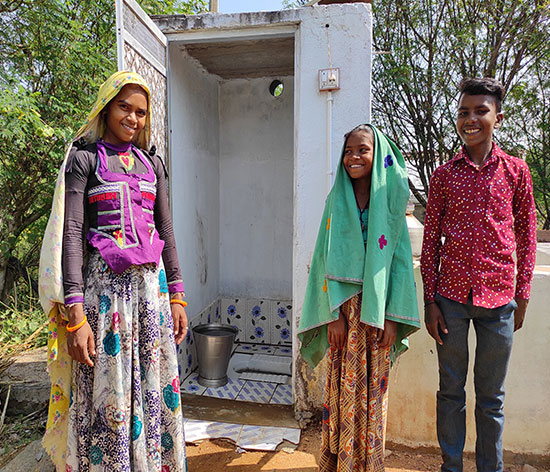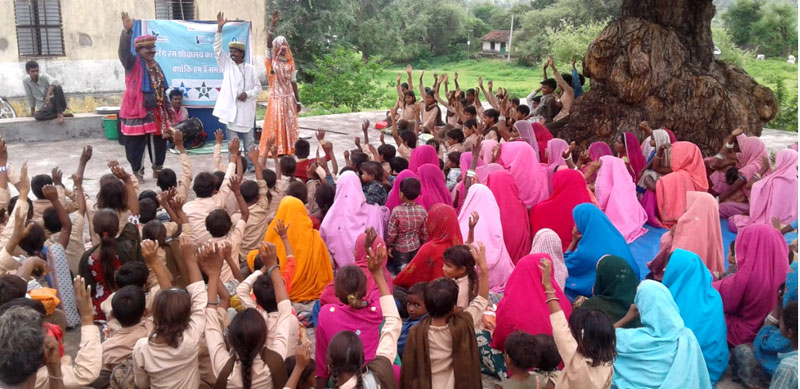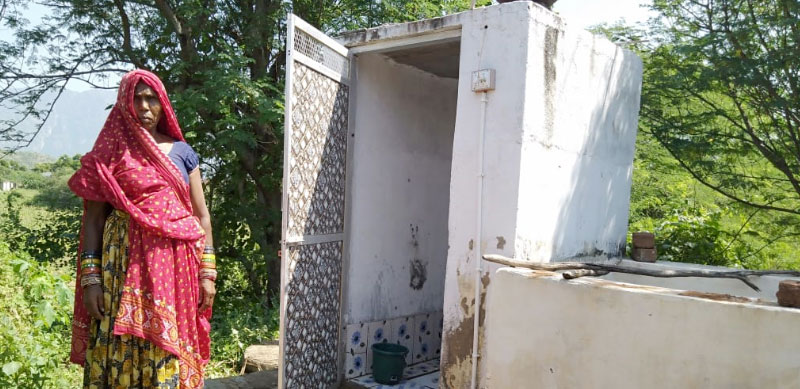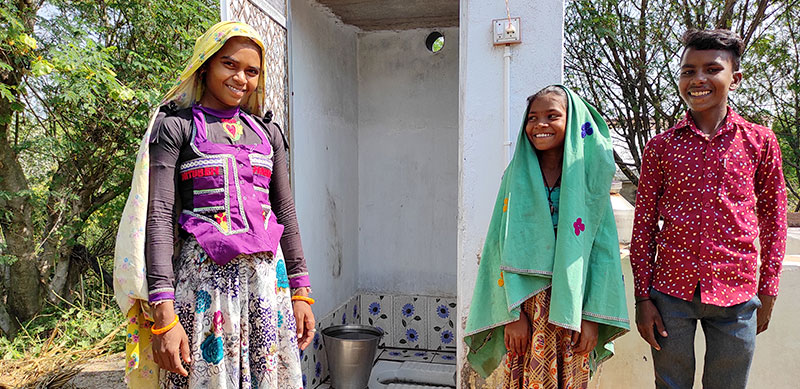
In a small habitation named Dhangiya Fali in Bhadurpura village in Rajasthan’s Abu Road block, lives 55-year-old Vagtu Bai – who is now the proud owner of a fully functional toilet. The toilet represents a significant behaviour change for Vagtu Bai and her family.
Vagtu Bai and her husband Nona Ram belong to the Garasiya tribe. They live with their son, daughter-in-law, niece and nephew. Like many others who depend on agriculture and daily labour for their income, Vagtu Bai and Nona Ram have a limited income. A toilet at home was never a priority. Like the other residents in the neighbourhood, they have always gone into the nearby woods or fields to defecate.
The toilet that wasn’t
In fact, the very idea of a toilet was new. Vagtu Bai says, “A few years ago, we had heard about India’s Swachh Bharat Mission programme which offers financial support for constructing toilets. And our village panchayat had released a work order to a vendor to construct toilets for all the beneficiaries who had joined the scheme.”
However, as Vagtu Bai explains, “There was no understanding of sanitation or hygiene. We decided to get a toilet built only because our neighbours were building it.”
The toilets that were constructed were of very poor quality – they had no ventilation and no proper underground chamber. The locals had no technical know-how to oversee the construction. The village venture failed. Open defecation continued as usual with the toilets lying unused.
Knowledge brings change
The real change came a year later, when the Centre for Microfinance (CmF), an associate organisation of the Tata Trusts, launched a behaviour change campaign. A thematic show on sanitation was initiated in Bhadurpura village. Using social art as a tool, this show highlighted the ill-effects of practicing open defecation. Apart from basic hygiene, using fields puts villagers at serious risk of injuries from thorn pricks and snake bites. The show also addressed misconceptions relating to toilet usage.
Vagtu Bai saw the show and participated in the village-level meeting that followed on the importance of using a toilet. Information about sanitary hygiene was also shared. It was then that Vagtu Bai and the other participants had a chance to really understand how using toilets for defecation could make a difference.
“When I saw the show for the first time,” said Vagtu Bai, “I could see that what the artist was representing on stage is a regular occurrence in my daily life.” She found the story where an old man found it difficult to walk a long way to find a space for defecation particularly touching. “My husband and I are growing old. We will also find it difficult to go a long way to defecate,” she said, adding, “At that point, what will we do?”
This thought troubled her so much that she began to seriously think about having a proper toilet at home.
The power of perseverance
The welfare of her family pushed Vagtu Bai into approaching CmF for help. To make the existing toilet functional, she needed a small amount as financial support – about Rs1,000 – to hire a trained mason who could resolve the technical problems.
But instead of merely repairing the toilet, Vagtu Bai and her family decided to rebuild the entire structure, and she arranged for funds to buy the construction materials. Vagtu Bai adds, “I dipped into my life savings and spent Rs6,700 to make the improvements – the height of the walls was increased, adequate ventilation was added, a junction chamber was installed, and twin pits dug to collect the waste. I also bought floor tiles, a new door to ensure privacy, a new toilet seat to replace the substandard one installed by the vendor, and had the walls whitewashed.”
Vagtu Bai’s story shows that it is not enough to provide infrastructure in a community. What is necessary is to spark sustainable behavioural change. That is the factor that leads to the community coming forward willingly to adopt new practices and customs.



